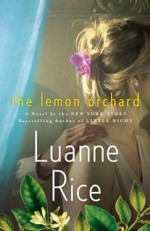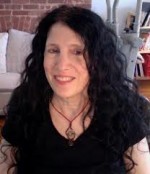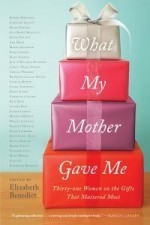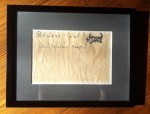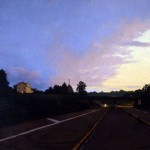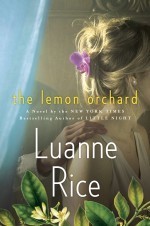Luanne Rice's Blog, page 15
April 15, 2013
This Week’s Drawing
Welcome friends!!
Please comment on this thread the chance to win an ARC of The Lemon Orchard as well as a special tote bag. We will notify the winner on Friday April 19.
Good luck!
Love,
Luanne
Contests are limited to US residents.
April 9, 2013
I’m visiting CAROLINELEAVITTVILLE!
I’m so grateful to the lovely and talented Caroline Leavitt for featuring The Lemon Orchard (and me) on her blog.
The Lemon Orchard comes out July 2, but is available for pre-order now.
Here’s what I can’t wait to read: Caroline’s new novel, Is This Tomorrow, a May Indie Next Pick.
And here’s Caroline in a baseball cap: 
April 3, 2013
To write

To write you have to like being alone. Ideas have to flow in and out like air through cracks in the cabin wall. Physical space isn’t important; the flow can happen in a tiny room. What counts is internal space. The voices you hear belong to your characters. I clear my life, days and weeks and months at a time, and I lie about it. It embarrasses me to need so much solitude. So I write this today with a sense of coming clean.
I’m a terrible one for canceling. I make plans because I love the people I make them with. But sometimes even a single appointment can worry me, or shift my focus to that day, that moment on the calendar, and I wind up saying I’m sorry, I won’t be able to.
This might be extreme. Some writers might need groups or gatherings or just plain old daily contact more than I do. I need solitude. When I wake up in the morning I get to my writing without speaking a word. Talking before work shifts my focus away. It’s not that what I’m writing is important, or beautiful, or noteworthy–it’s just what I do. The words are important to me, maybe no one else. I tell stories because if I didn’t I would stop breathing.
One can never be alone enough to write — Susan Sontag
Writing, at its best, is a lonely life. Organizations for writers palliate the writer’s loneliness but I doubt if they improve his writing. He grows in public stature as he sheds his loneliness and often his work deteriorates. For he does his work alone and if he is a good enough writer he must face eternity, or the lack of it, each day — Ernest Hemingway, 1954 Nobel Prize acceptance speech
The computer makes writing both easier and harder. It makes revision easier but it’s a portal to the Internet which is a distraction. The internet has pluses and minuses. When I first discovered it I was distracted by it all the time. Email, constant contact–both wonderful and destructive, like the best addictions. Facebook provides the sense of a social life; Pinterest seems to me to be intuitive and wordless communication, a way to say who you are, or at least who you are at the moment of pinning a picture or poem; Twitter is immediate like speed or sugar; a comic artist introduced me to Tumblr, and I think I like the feeling of it. But let’s face it, the Internet is hell on writing.
My father, who sold and repaired Olympia typewriters, gave me an Olympia SM 9 when I was in school. I’m glad they still make ribbons for it. I’ve stocked up in case they stop.
I think the sound of the keys comforts me; I know the cats like it. They sit close, as if the typewriter is a hearth. Most of the time I still write on my computer and sometimes on those nights I dream I am typing. Either way the stories get told.
Life is writing and writing is life.
March 29, 2013
What My Mother Gave Me
My essay Midnight Typing is included in the collection What My Mother Gave Me, edited by Elizabeth Benedict, and out from Algonquin Books on Tuesday, April 2.
My mother gave me many gifts, and one of them was the encouragement to write. She led by example, often writing into the night after she’d put my sisters and me to bed. Her artistic spirit inspired me, and it’s embodied in a little drawing she did shortly before she died. The pen-and-ink sketch depicts her scottie Gelsey; just below, in her shaking handwriting, is the phrase Beware of Wee Ferocious Beastie. For several months it hung in the window of her kitchen door, and it was quintessentially my mother in so many ways–if you knew her, you might know what I mean. Even when she was dying she guarded her solitude, her time for writing and painting and sketching.
I keep the drawing framed in the kitchen of the Connecticut beach cottage she so loved; it makes me think of her and feel her presence and support.
The book contains work by so many writers I love and admire, and I feel immensely honored that Liz included me. Here are the other contributors: Roxana Robinson, Caroline Leavitt, Maud Newton, Jean Hanff Korelitz, Katha Pollitt, Ann Hood, Margo Jefferson, Emma Straub, Mary Gordon, Judith Hillman Paterson, Cheryl Pearl Sucher, Abigail Pogrebin, Reverend Liilian Daniel, Celia Munoz, Elissa Shapell, Karen Karbo, Charlotte Silver, Rita Dove, Luanne Rice, Elinor Lipman, Martha McPhee, Dahlia Lithwick, Mameve Medwed, Susan Stamberg, Joyce Carol Oates, Sheila Kohler, Marge Piercy, Eleanor Clift, Mary Morris, Lisa See, Elizabeth Benedict
Drawing by Lucille Arrigan Rice:
March 26, 2013
Road Odyssey
Here’s a fascinating essay by Vanessa Veselka: The Lack of Female Road Narratives and Why it Matters.
I thank my writing pal Joe Monninger for sharing it with me and therefore sending me on a remembrance-of-road-odysseys-past. I went through a hitchhiking phase in my teens, and I sometimes have nightmares of a couple specific close calls. One happened somewhere between Old Lyme CT and Hightstown NJ; it was early October, after a summer at the beach, and I missed one of my beach friends so much I decided to hitch down to visit him in boarding school.
In this space I normally write about the nature of summer friendships, the depth of love for my beach friends, but Vanessa’s essay takes me to a different place, to the reality of what happened on the road. There I was–17, maybe?–standing thumb-out on an I-95 entrance ramp, so convinced of my own invincibility that I climbed into the cab of an 18-wheeler. I can’t picture the driver, but I can see that truck–red cab littered with fast food wrappers and a dark curtain behind the seats. ”Check it out back there,” he said. ”It’s where I sleep.” That was the first moment my stomach flipped.
I felt brave, resourceful. That made me reckless, but I only know that now, from the distance of many years. If I think of my nieces doing what I did, I’d lose it. Yet even after that ride in the big rig–and the driver’s innuendo and invitation into the back and my opening the door and jumping out at a toll booth–I kept hitchhiking. I got to Hightstown and later made my way back home. When my younger sisters were visiting one of their boyfriends in Warren VT, I hitched north through thickly falling snow to meet them.
Right after our father died my sisters started hitching with me–great older sister, wasn’t I? The the three of us were heading back to Old Lyme from Newport RI and got picked up on Route 138 by some creep in a rattletrap who told us he had beagle puppies at home and would we like to see them? We scrambled out at the next exit, climbed the ledge that bounded the ramp, and walked for miles along the crest until we got tired and called our mother to pick us up.
Nothing disastrous happened, except perhaps to our psyches. Stepping so close to the edge, courting danger, has a serious half-life. You might not be conscious of it, but the what-ifs visit your dreams. When I was young I was searching for something–I’d push myself to do things that must have scared me at some level–when I think of them now I marvel that I survived, thrived, and wrote about them in short stories and novels. I feel guilty for taking my sisters on that part of my own strange journey, but back then we were so inseparable it would have been unthinkable to leave them out.
Come to think of it, my new novel, The Lemon Orchard, is about journeys. Traveling far from what is comfortable to find something you’re not even sure you need… Maybe that’s just life; it’s certainly been my life.
[Image: The Highwayman by Linden Frederick]
February 7, 2013
WNYC link
here is a link to the essay about the newtown school shootings that i wrote and then read on WNYC.
that i wrote and then read on WNYC.
January 1, 2013
Little Night
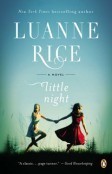 Clare Burke’s life took a devastating turn when she tried to protect her sister, Anne, from an abusive and controlling husband and ended up serving prison time for assault. The verdict largely hinged on Anne’s defense of her spouse—all lies—and the sisters have been estranged ever since. Nearly twenty years later, Clare is living a quiet life in Manhattan as an urban birder and nature blogger, when her niece, Grit, turns up on her doorstep.
Clare Burke’s life took a devastating turn when she tried to protect her sister, Anne, from an abusive and controlling husband and ended up serving prison time for assault. The verdict largely hinged on Anne’s defense of her spouse—all lies—and the sisters have been estranged ever since. Nearly twenty years later, Clare is living a quiet life in Manhattan as an urban birder and nature blogger, when her niece, Grit, turns up on her doorstep.
The two long for a relationship with each other, but they’ll have to dig deep into their family’s difficult past in order to build one. Together they face the wounds inflicted by Anne and find in their new connection a place of healing. When Clare begins to suspect her sister might be in New York, she and her niece hold out hope for a long-awaited reunion with her.
LITTLE NIGHT–Rice’s milestone thirtieth novel–is a riveting story about women and the primal, tangled family ties that bind them together.
Click to read Starred reviews for LITTLE NIGHT
Little Night: Entries in Luanne’s blog
Buy the Book
Amazon • Barnes & Noble • IndieBound • Apple
A Conversation with Luanne Rice and Ceri Radford
Q. What inspired you to write this novel?
I wanted to write about the way a family can look great, “normal,” from the outside, when abuse is taking place behind closed doors. Also, write about how abuse, no matter who it’s directed at, affects the entire family.
Q. You recently wrote a piece for the Huffington Post about your own experiences in an abusive marriage. How did your marriage compare with Anne’s? How did you get away?
One difference is that I didn’t have children. I received the whole brunt, and although he didn’t hit me, the psychological and emotional toll was high. Like Anne, I kept the abuse secret. I became more and more isolated from my friends and family. There was a moment when I saw things clearly. I imagined what my mother would say if she was still alive, how she would help me get away from him. So I used that strength and got away myself.
Q. In that piece, you mentioned being angry with a friend for seeing through the veil of secrecy. What advice would you give to those—a friend or family member—who want to help a victim of abuse? Should they expect to be met with anger?
A hallmark of being in an abusive relationship is denial. That’s how you survive. He’s telling you it’s all your fault, if only you’d be nicer, more understanding, less suspicious, more patient, things would be better, and he wouldn’t have to get so mad. So you twist into a pretzel, trying to set things right. Part of you hates yourself for this behavior, and part of you is hoping that this time it will work. How you react to a friend’s concern depends on the day. If you’re beaten down and in a “had enough” mode, you might listen and even open up. But because life with an abuser is like a kaleidoscope, ever shifting, when the picture changes, so does your hope and ability to see straight. So as a friend or family member, I would say be honest but be prepared for a negative reaction—until she’s really ready to hear you. And even then, she might hear for that moment and then pull back and retrench and believe him when he tells her you’re putting ideas in her head, you’ve never liked him anyway, that she’s disloyal and can’t keep her mouth shut.
Q. How did you go about putting your life, and yourself, back together again?
I think the biggest part is learning to be kind to yourself, recognizing that you don’t have to put someone else’s needs first, starting to focus on taking care of yourself. So much energy was put into trying to placate the abuser, there were huge gaps in self–care. You have to relearn—or learn—how to nurture yourself to the point of reminding yourself that you’re hungry, tired, it’s time to eat, sleep.
I wrote novels, and I surrounded myself with people who loved me. People I’d driven away over time came back to me, and no one said, “I told you so.”
Also I attended a support group called Domestic Violence Valley Shore Services. It was led by two strong, wonderful women. We’d meet on Thursday night, and by sharing our stories and tears, we healed. A group of united, supportive women is never to be underestimated.
Q. Many of the characters find solace in nature. You also blog about nature and, specifically, birds. How would you describe your relationship to nature?
I think I have a character in another novel say, “Nature is in my nature.” It’s true, it’s in all of ours. My sister Maureen has always loved the poem “Lines Written a Few Miles Aabove Tintern Abbey” by William Wordsworth, and we often quote the line, “Nature never did betray the heart that loved her.” From the youngest age I can remember I sought nature to soothe and inspire me. My father was a navigator during the war, so he’d take us on night walks and show us how to identify constellations and find our way home. My mother painted and taught us that the beach was not only for walks and fun, but, with her easel set up in the marsh, a deep and endless source of inspiration. I love getting lost in nature—not literally—but in the sense of forgetting everything but the feeling of wind in my hair and the call of a pine warbler high in the canopy of trees in Central Park’s Ramble.
Q. This is your thirtieth novel. How would you say your books have changed? How have changes in your life affected your writing?
My first novel was about sisters and family, and so is my thirtieth. I am more interested than ever in how families work—how we love each other, break up, stay together, lose each other, hold on through the worst storms. Life has taught me a lot in thirty years. Both my parents died after long illnesses. I’ve been married and divorced . . . .more than once. There’s been much love, heartbreak, and love again. A friend was murdered. There have been family estrangements. I stopped drinking. I experienced domestic violence and found strength I never knew I had. After living in New York City most of my adult life, I’ve begun spending most of my time in Southern California. I’ve been seeing the same wise, compassionate, wonderful therapist since before writing my first novel. That’s a lifetime. To have her support and perspective is invaluable in ways I can’t begin to calculate. I fly home to see her or we talk on the phone. She once remarked that my novels seem prescient; my characters would have wild experiences, and a year after publication, my life would echo theirs. It’s fascinating, the writer’s unconscious. My characters learned the lessons I needed to learn before I was actually ready. So in that way, my characters pave my way through life.
Q. What were some of the particular challenges that writing this novel presented?
This novel flowed from my fingertips. It’s full of emotion, the horror of losing a relationship with someone you love as much as yourself, and the tentative—then growing—joy of meeting a niece you never thought you’d get to know. Writing about birds and birding in Central Park gave me the chance to share one of my favorite parts of New York City. Many people don’t realize how wild the park is, one of the best places to observe migratory birds in the world.
Q. Would you argue that Anne should be held accountable for the actions that helped her escape from her husband?
I am very involved with the Domestic Violence Clinic at Georgetown University Law Center and am so proud of the work done by Professor Deborah Epstein and her students do on behalf of abused families. Anne’s actions will obviously provoke debate, but I imagine Clare immediately contacting an attorney such as Deborah or one of the Georgetown grads, finding a strong advocate who’ll fight for Anne.
Q. What do you hope readers will take away from Little Night? Did writing it teach you anything unexpected?
I hope readers will enjoy reading about the complications and secrets of a family. Love isn’t always straightforward. I also hope that a reader might recognize herself or someone she loves and find a way to start talking about what’s going on, the first step in getting help.
Q. What can we look forward to in your next novel?
Love between two people from different worlds, united by the knowledge of how it feels to lose a daughter.
December 16, 2012
newtown
 from the minute i heard about the shootings at sandy hook elementary school in newtown ct, a small and beautiful town in one of the prettiest parts of beautiful connecticut where terrible things aren’t supposed to happen, i’ve been thinking about the children and teachers who were murdered and their families.
from the minute i heard about the shootings at sandy hook elementary school in newtown ct, a small and beautiful town in one of the prettiest parts of beautiful connecticut where terrible things aren’t supposed to happen, i’ve been thinking about the children and teachers who were murdered and their families.
the pictures of the children break your heart. smiling, happy, talented–a video of one little girl playing the piano and singing.
one of their teachers, rachel d’avino (shown in the photo above), attended the university of st. joseph in west hartford connecticut. i learned this when i called my favorite teacher, laurette laramie, just to hear her voice, and to let her know what she means to me. laurette and my mother, lucille arrigan rice, also attended st. joe’s and became teachers. the devotion my mother and laurette had/have for their students has always inspired me. once in 1978 or so a student brought a handgun into my mother’s class and drew it on her and the class and she talked him into not shooting anyone, into putting the gun away, into letting her take him to the guidance counselor.
that story of my mother’s was just a story–it wasn’t headlines, it happened pre-lockdowns, pre-metal detectors. my mother’s life was threatened, but she just kept going, caring about her students, getting them help when she could, directing them to the school psychologist because she believed their actions came from inner pain.
i feel devastated to learn of rachel’s death. i didn’t know this bright and dear young woman, but i feel the st. joe’s connection. i’m the daughter of a teacher, and i think teachers are our everyday saints. i know laurette is one, i know my mother was, my friends joe monninger and doreen dedrick are, and i know that the teachers murdered in newtown are: rachel d’avino, dawn hochsprung (principal), anne marie murphy, lauren rousseau, mary sherlach, and victoria soto.
tonight i spoke with my friend sgt. rob derry of the connecticut state police to ask him about the first responders (the “good guys” some of the teachers spoke of)–who had to deal with the trauma of what they saw. he told me that right now there are two state troopers assigned to each newtown family who lost a child, and tomorrow there will be a large law enforcement presence at all connecticut schools. my grandfather was a hartford police detective. i’m in awe and gratitude of the people who devote their lives to public service.
to quote my sister maureen rice onorato: “i’ve always been so amazed by people who work in schools, who help children every day, children and their parents…every day out there looking out for them.” we think of our mother, how much she cared…every day, all through the years. she taught children who had children of their own, and she really helped them know they could go on to better lives. she would come home and talk about her kids, and their lives, and we could feel her love for them.
thank you, love, and love, and more love. oh rachel.
December 10, 2012
The Lemon Orchard
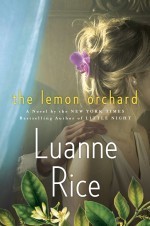 From bestselling author Luanne Rice—a captivating and sexy novel of love, both enduring and unexpected
From bestselling author Luanne Rice—a captivating and sexy novel of love, both enduring and unexpected
Year after year, Luanne Rice’s fans eagerly await her next book. Their enthusiasm is soon to be rewarded with The Lemon Orchard, Rice’s romantic new love story between two people from seemingly different worlds.
In the five years since Julia last visited her aunt and uncle’s home in Malibu, her life has been turned upside down by her daughter’s death. She expects to find nothing more than peace and solitude as she house-sits with only her dog, Bonnie, for company. But she finds herself drawn to the handsome man who oversees the lemon orchard. Roberto expertly tends the trees, using the money to support his extended Mexican family. What connection could these two people share? The answer comes as Roberto reveals the heartbreaking story of his own loss—a pain Julia knows all too well, but for one striking difference: Roberto’s daughter was lost but never found. And despite the odds he cannot bear to give up hope.
Set in the sea and citrus-scented air of the breathtaking Santa Monica Mountains, The Lemon Orchard is an affirming story about the redemptive power of compassion and the kind of love that seems to find us when we need it most.
Buy the book
December 3, 2012
The Lemon Orchard
i am thrilled to give you a first look at the cover of my 2013 novel–THE LEMON ORCHARD. it will come out on July 2, but you can pre-order now if you like. it’s never too soon to dream about summer reading!
Very thankful to my librarian friends for this lovely mention of THE LEMON ORCHARD in Library Journal:
House-sitting for her aunt and uncle in Malibu, with only her dog for company, Julia seeks solitude so that she can quietly mourn her daughter’s death. Then she befriends Roberto,who tends the nearby lemon orchard and has sorrows of his own: his daughter has disappeared, but he has yet to give up hope. Classic Rice and doubtless another best seller.

